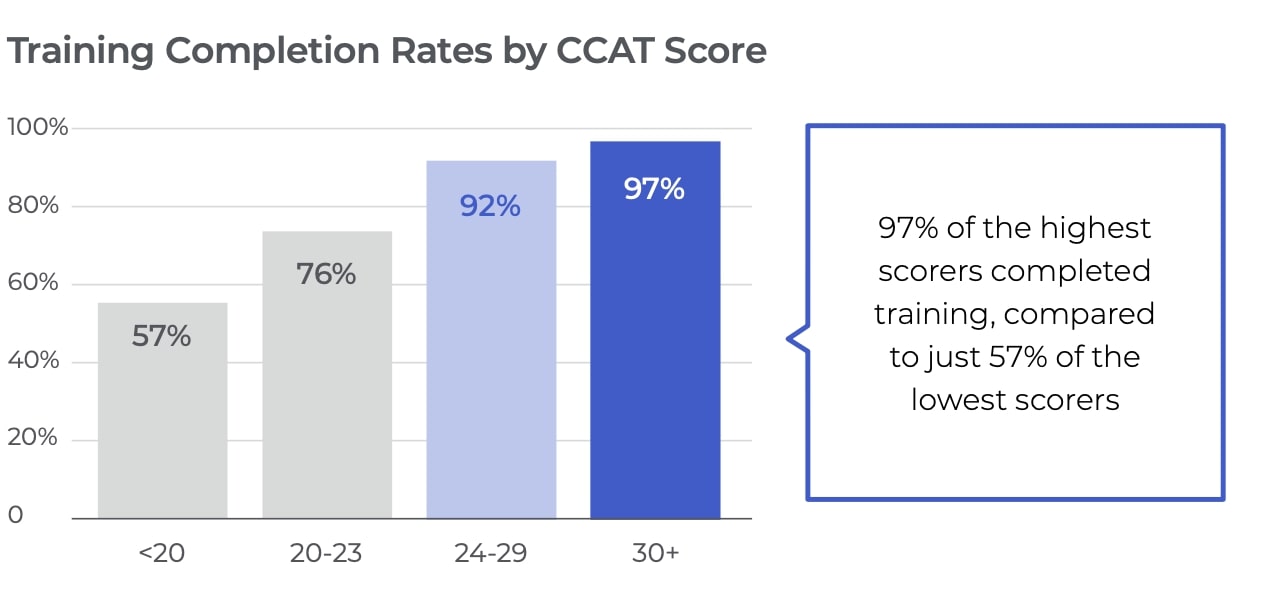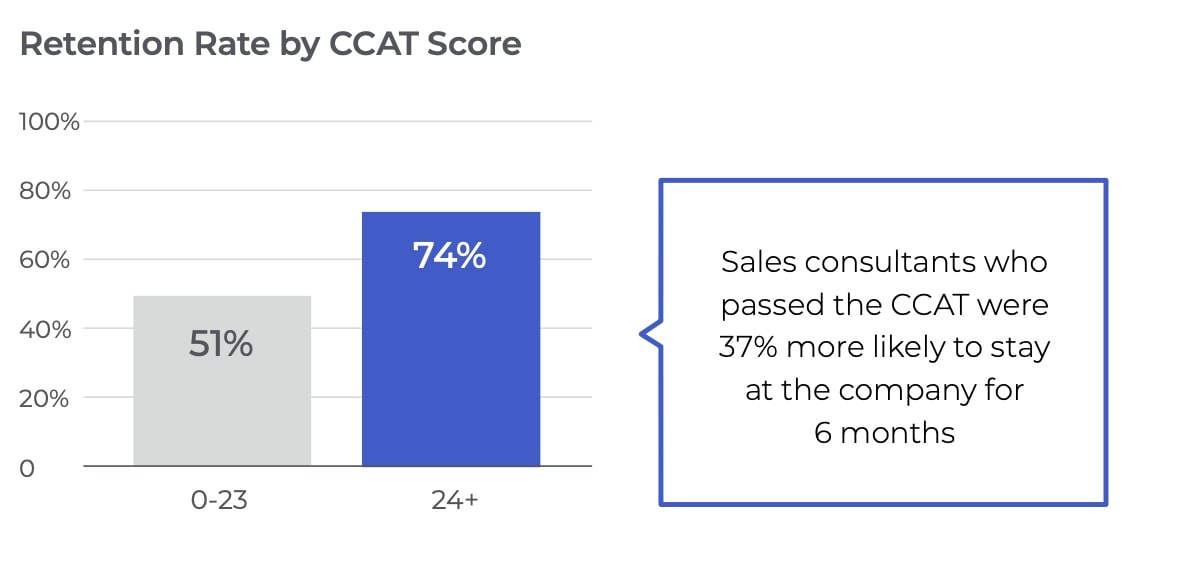Case Studies Technology Call Center Uses the CCAT to Reduce Turnover
The Challenge
A leading Internet domain registrar and web hosting company wanted to reduce turnover and improve retention rates at its call centers for employees working as sales consultants. The position involved speaking to customers over the phone in order to sell the company's products and provide ongoing technical support. New employees in the position must undergo a training period lasting a few weeks before passing a training exam in order to complete the training.
The company wanted to improve the training completion rates of its new employees as well as the employee retention rate after 6 months. In order to help accomplish this goal, the company incorporated Criteria Corp's tests into its hiring process, and performed two different studies on its employees to analyze the impact of pre-employment testing for enhancing its training efforts and reducing turnover.
Study 1: Training Completion Rates
The Solution
The company administered the Criteria Cognitive Aptitude Test (CCAT) to a group of 535 employees newly hired as sales consultants. The CCAT is a cognitive aptitude test that assesses an individual's aptitude, or the ability to solve problems, learn new skills, and think critically. The new hires then underwent the standard training period before taking the final training exam. Trainees who passed the test would successfully complete their training and begin work as full-time employees, while trainees who did not pass were not invited to become team full-time team members. The training completion rates of the trainees were then compared with their CCAT scores.
The Results
The results demonstrated that the CCAT scores of the new hires were strongly correlated with whether or not they successfully completed training, (r=0.32, p < 0.01). In other words, the higher a new employee scored on the CCAT, the more likely he or she was to pass the training exam and successfully complete training.

Of the 143 trainees who scored a 30 or more on the CCAT, 97% successfully completed training. In the next tier, 92% of trainees who scored 24-29 on the CCAT completed training. For trainees who scored below average (below a score of 24) on the CCAT, the training completion rate was much lower - for those who scored 20-23, the training completion rate was 76%, and for those who scored below 20, the training completion rate was a disappointing 57%.
The data suggested that the company could dramatically increase the rate at which its new hires completed training by implementing a minimum CCAT score for new hires in the sales consultant position. Based on the data from the study, setting a cutoff score of 24 on the CCAT would yield an overall training completion rate of 94%, as opposed to 87%. In other words, using a CCAT cutoff score of 24 would cut the number of people who didn't make it through training by about 50%, which would lead to dramatic cost savings. The company therefore implemented a minimum cutoff score for the CCAT as part of its employee selection process.
Study 2: Retention Rates After 6 Months
The Solution
In a separate study of new hires for the sales consultant position, the company administered the Criteria Cognitive Aptitude Test (CCAT) to a group of 745 newly hired sales consultants who had completed the training process. Their CCAT scores were then compared to employee retention rates 6 months after they were hired.
The Results
The data revealed that employee CCAT scores were positively correlated with whether they were still at the company after 6 months (r=0.20, p < 0.01). In other words, new employees who received high scores on the CCAT were more likely to remain in their positions after 6 months on the job.

The graph above demonstrates that after 6 months, only 51% of the employees who scored 23 or lower on the CCAT remained at the company, compared to 74% of the employees who scored 24 or higher on the CCAT. This study along with the previous study demonstrate the CCAT's validity as a powerful tool not only for predicting short-term training completion rates but also for predicting long-term retention rates and reducing turnover.